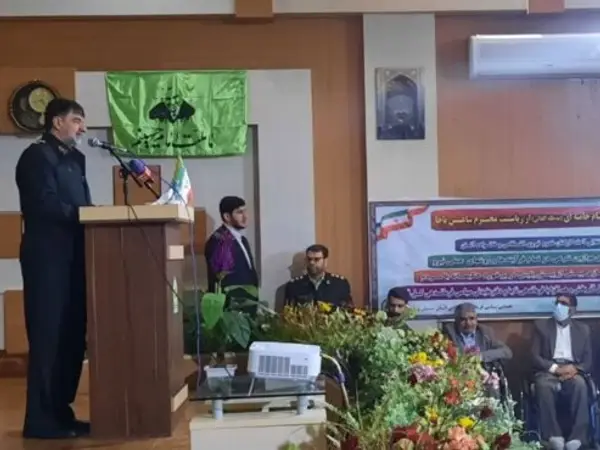The Islamic Republic police chief has appointed a new commander for Sistan-Baluchestan, the second in recent months for a province where protests have not eased since September.
As protests and strikes are likely to gain new momentum over the freefall of the national currency rial, Police Chief Ahmad-Reza Radan appointed Doustali Jalilian Sunday, to replace Mohammad Ghanbari who held the post for about two months in the restive province.
Ghanbari himself had replaced Ahmad Taheri in November, who was the police commander during the massacre of protesters on September 30 in the provincial capital Zahedan. During “Bloody Friday”, as it became known, security forces opened fire killing more than 80 people. The security council of the province dismissed the police commander and chief of a police base in the city to calm the situation but to no avail. The Sunni Imam of Zahedan, Mowlavi Abdolhamid, called the move “inadequate” but “a right step” demanding the formation of an independent fact-finding committee to deal with the Bloody Friday massacre. Abdolhamid repeated his call for investigation into the incident almost every Friday since then.
Jalilian, the new police chief, was the commander of Shahr-e Rey, a city in Tehran province with a relatively high crime rate. The new appointment can be seen as part of intensifying security measures in the face of rising prices and the devaluation of rial, which herald a new wave of regular protests.
During a ceremony to announce the appointment, Radan who was himself chosen for the job in January, reiterated threats against holding demonstrations. Like many other intelligence and police officials, Radan is a veteran of the Iran-Iraq war in the 1980s and in essence an IRGC officer.
Regarding the security of Zahedan, there will not be any appeasement, he said, adding, “We don't allow anyone to cross our red line because such issues (protests) stop the moving train of development.”
Trying to justify the appointment of the new chief just about two months after the earlier replacement, he claimed that Ghanbari had been "temporarily" appointed to the police command of this province. However, no report was published about the temporary nature of Ghanbari's mission.
Despite large crowds gathering every Friday since September to protest against the Islamic Republic in Zahedan, Radan claimed, "Today, this province is in a good condition in terms of all security indicators.”
Last Friday, February 24, the Iranian regime was determined to prevent another round of protests by heavily deploying its security forces. However, worshippers held their customary rally following prayers, chanting "Death to Khamenei" and "Death to IRGC."
Makki Grand Mosque, where Abdolhamid usually delivers his Friday sermons, was under siege since the early hours on Friday and security forces tried to enter the Sunni mosque but were confronted by angry people. Some social media videos show snipers stationed on the roofs of the buildings and hills in the area.
Amnesty International said on Friday that Ebrahim Rigi, a 24-year Baluch protester died as a result of beatings and injuries he sustained in police custody earlier in the week. Amnesty added that “evidence pointing to torture shows once again the Iranian authorities’ horrific assault on the right to life.” A day earlier, the former police commander had reacted to the murder of Rigi claiming that some people having a dispute with the victim had beaten and taken him to the police station while he was unconscious.
